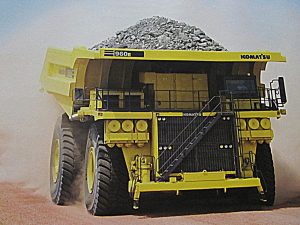In the midst of a climate emergency, we are displaying the carbon footprint for the average Australian, smart renter and very smart renter categories. Being a smart renter not only means saving money but also regenerating the ecosystem we are renting from our future generations.
The Problem
- Coal and gas mining, transportation and combustion adversely affects the air and water quality for people living nearby.
- Coal and gas also emit huge amounts of carbon leading to more droughts, food shortages, bushfires, flooding and sea level rises caused by global warming.
- The world needs to drastically cut emissions and drawdown excess carbon immediately including use of fossil fuels [1].
- Business as usual projections show that Australia, and most of the world will be uninhabitable by the end of this century unless drastic action is taken to cut carbon emissions [2][3].
- Climate change is already affecting parts of Australia.
What you can do:
- While collective action and pressure is imperative for changing government and business practices, individual actions also matter (especially in a wealthy country like Australia).
- The photo below shows a truck carrying 326 ton of coal. Imagine that it’s carrying 326 ton of compressed carbon instead. We’ll call this “a massive truckload of carbon”.
“Trucks carry coal” by Ladymaggic is licensed under CC BY-NC 2.0
- Last year the world dumped 114 million massive truckloads of carbon into the atmosphere. If every person in the world lived like an Australian, this would jump to 340 million.
- Just for utility energy alone, an average Australian home dumps one of these massive truckloads of carbon into the atmosphere every 40 years.
- A smart renter will dump a massive truckload of carbon into the atmosphere every 80 years or more (still a lot, but better).
- A very smart renter would need 326 years or more to make a massive truckload of carbon for their home energy impact.
- After cutting your energy use, switching to 100% GreenPower will further slash your emissions and is much cheaper to do when your energy needs are lower. It will more than double the years it takes to create a massive truckload of carbon.
- Going gas free is also a great way to lower your emissions: Gas is becoming increasingly dirty while the electricity grid is improving and switching to renewables is not possible on gas.
Why cutting carbon right now is good:
- It will save you money and because you exchange your time for money, it will save you time. Time is the most precious resource we have.
- Climate change and other environmental catastrophes are already underway. We can turn this ship around to avert the worst but there’s no way that we will be completely unscathed. Living large on less is the smartest thing you can do to create a buffer against future shocks.
How we measure carbon per kWh of electricity/MJ of gas
- We use an Australian wide average of 0.66kg of carbon per kWh of electricity used at home.
- Tasmanians with their abundance of hydro-electricity have Australia’s best grid with 0.19kg/kWh whilst Victoria with its heavy use of brown coal has Australia’s worst with 1.07kg/kWh [4].
- We use a similar average of 0.66kg of carbon per equivalent kWh for gas for a big reason. Gas produces less C02 per kWh of heat at the point of use and shifts the emissions through methane leaks in gas production facilities and pipeline networks [5].
- Due to heat losses, gas appliances also typically need a more energy at home to do the same job as electric appliances.
- In some regions, gas may be a little less bad than electricity and in other regions it is worse. Hence, we are not interested in trying to split hairs: treat gas as a dirty fuel like coal. Using less is best.
Further Reading:
[1] https://www.theguardian.com/environment/live/2018/oct/08/ipcc-climate-change-report-urgent-action-fossil-fuels-live [2] https://www.vice.com/en_us/article/597kpd/new-report-suggests-high-likelihood-of-human-civilization-coming-to-an-end-in-2050 [3] https://www.theguardian.com/environment/2015/jan/26/climate-change-will-hit-australia-harder-than-rest-of-world-study-shows [4] We used an online carbon calculator to get the figures for various Australian states here:https://www.powershop.com.au/carbon-calculator/
[5] https://blog.nature.org/science/2016/06/24/natural-gas-coal-leak-rate-energy-climate/